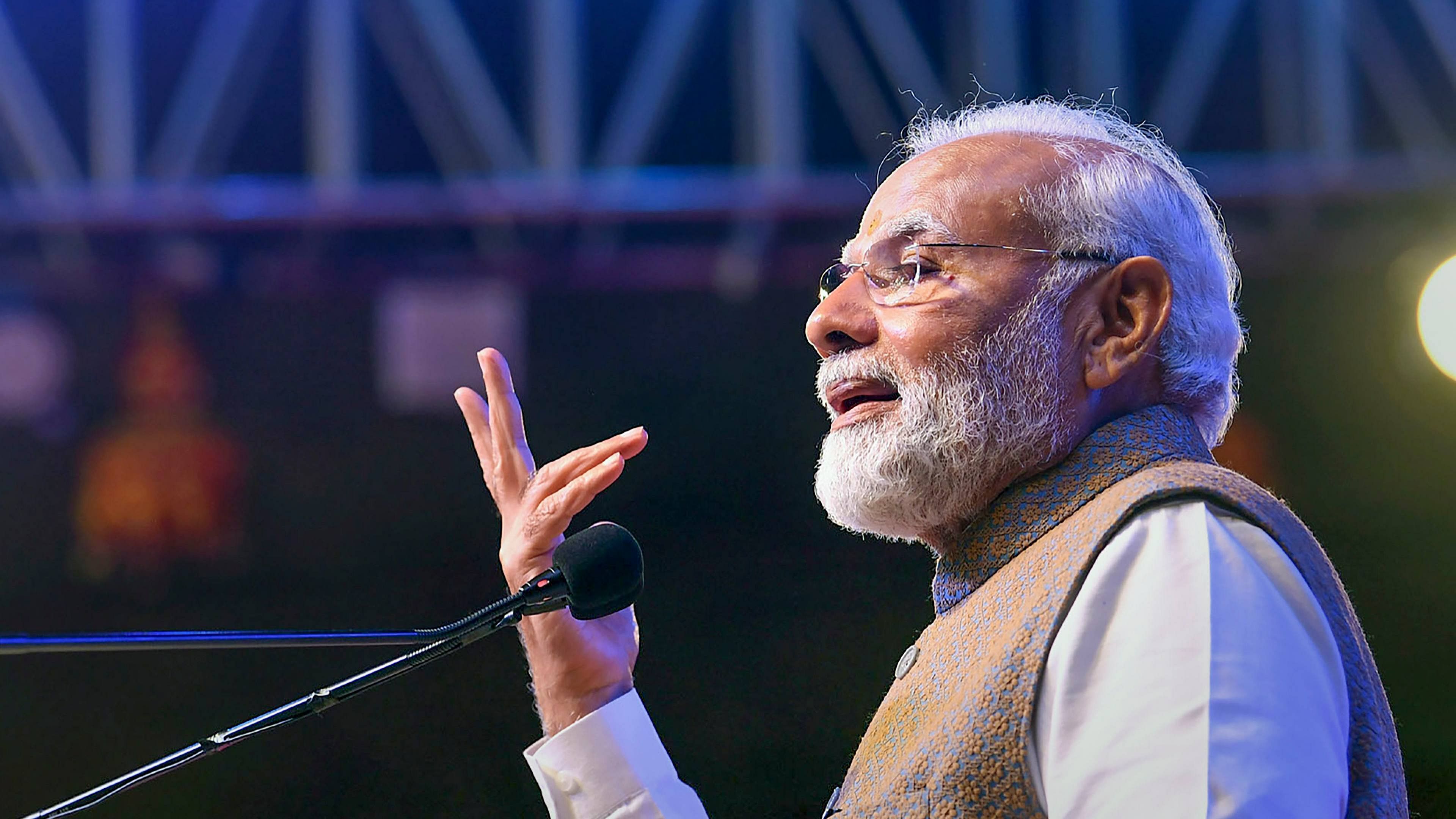
In a public speech in May 2022, the first anniversary of his government, Assam Chief Minister Himanta Biswa Sarma, switched the official designations of Prime Minister Narendra Modi and Home Minister Amit Shah. His faux pas was described as a “slip of the tongue” by the Bharatiya Janata Party (BJP). However, Sarma did not allow Congress spokesperson Pawan Khera to plead benefit of doubt on the same grounds.
Gujarat Chief Minister and the BJP’s prime ministerial candidate of 2013, Narendra Modi made many gaffes, referring to “Mohanlal” (instead of Mohandas) Karamchand Gandhi, claiming that the ancient city of Taxila lying north-west of Islamabad was in Bihar, that Alexander died near the Ganges in Bihar, and even confusing Gujarat freedom fighter Shyamji Krishna Verma with Shyama Prasad Mookerjee, the founder of the Jan Sangh, when he said that the Congress had ignored the memory of Mookerjee who had died unsung abroad. Congress leaders who sniggered at these lapses, were accused by the BJP of ‘making an issue out of nothing’, describing Modi's errors as a ‘slip of the tongue’.
On the face of it, Khera referring to Prime Minister Modi as Narendra “Gautamdas” (instead of Damodardas) Modi, appears to have been more than that. When corrected, Khera made a quick comeback saying that even though the Prime Minister’s second name was Damodardas (after his father), his actions were like a “Gautamdas” (literally, Servant of Gautam) — a clumsy but savage jibe in the light of Congress allegations of a nexus between Modi and businessman Gautam Adani.
Justifying the actions of the Assam Police, Sarma claimed that the procedure was lawful, and nobody could be allowed to insult the Prime Minister’s father. After interim bail was granted to Khera, Sarma tweeted: “We hope that … no one will use uncivilized language in political discourse hereafter. @assampolice will follow the matter to its logical end.” It established Sarma’s role as self-proclaimed sentinel for the BJP, sending a clear signal that he would go after anyone who attacked the Prime Minister.
Democratic parties normally do not need such enforcers of discipline. But the analogy is useful in the current Indian political context to analyse dramatic and strong action against perceived threats to the image of the party leader, and to its majoritarian dominance. If in Uttar Pradesh, the JCB machine (bulldozer) has come to symbolise the enforcement of the State’s authority (ostensibly against ‘encroachers’ but many believe, mostly Muslims), in Assam, law is the chosen instrument.
In April 2022, Assam Police arrested Dalit leader Jignesh Mewani from Gujarat for a purported tweet that Modi “considered Godse as God”. Then, as in Khera’s case, the charges were of criminal conspiracy, promoting enmity between two communities, and intentional insult with intent to provoke breach of peace. Sarma’s drive to arrest ‘Bangladeshi foreigners’, and, more lately, arrests of those who have violated the Child-Marriage Act, have raised accusations of using the law to intimidate minorities in the state.
With some difference in his modus operandi, Uttar Pradesh Chief Minister Yogi Adityanath is another top inquisitor for the BJP. In Haryana where the police is apparently hunting for a cow-vigilante accused of lynching two Muslim youngsters, Hindu groups are asking Chief Minister Manoharlal Khattar to ‘bring the UP model here too’. Acharya Azad, a leader of the Haryana wing of the Gau Raksha Dal, told a Mahapanchayat in support of the murder accused, “I request Haryana CM Khattar to learn from UP Chief Minister Yogi Adityanath and bring bulldozers to the houses of cow smugglers. Drive the bulldozers through their houses.”
However, the task of these political sentinels has just become more complex with international voices questioning the BJP-led government’s policies. While Opposition leaders were quite easily censored by pompously citing parliamentary propriety, international criticism needs a different approach. The BBC management cannot be arrested by Assam Police for their documentary India: The Modi Question, or George Soros deplaned in Switzerland and arrested. Bulldozers from India cannot raze offices of Hindenburg Research for alleging a nexus between the BJP leadership and Adani.
To take on international critics of Modi’s regime, a band of English-speaking hall monitors have been marshalled into action. Loquacious ministers such as Smriti Irani and S Jaishankar have been busy conjuring up the spectre of a “foreign hand”. The new narrative being enforced is that an envious world, upset with the regime’s global influence, India’s economic growth, and its military power, is trying for a regime change in 2024. This was the core of foreign minister Jaishankar defence where he said in an interview that “I can’t tell you if election season has started in India or not, but it has definitely started in London and New York.”
To the inflated narratives of surgical strikes against Pakistan, the Balakot airstrike destroying terrorist camps across the border, and of how India’s dynamic leadership tackled the Covid-19 pandemic while the rest of the world floundered, new ones are constantly added. Modi’s international clout is cited to claim that he was able to pause the Russia-Ukraine war for the evacuation of 22,500 Indians from Ukraine, and that now he is poised to play a crucial role in mediating peace in Europe. The enforcement of such a nationalist narrative will immediately put detractors on guard, and delegitimise any criticism of the carefully sanitised image of the BJP leadership coming from documentaries, news reports, comments by global leaders, and exposes such as that by Hindenburg Research.
Politically, it seems that this regime will continue to respond to internal and external disapproval not by course correction in its policies, but with its inquisitors taking down its critics.
(Bharat Bhushan is a Delhi-based journalist.)
Disclaimer: The views expressed above are the author's own. They do not necessarily reflect the views of DH.